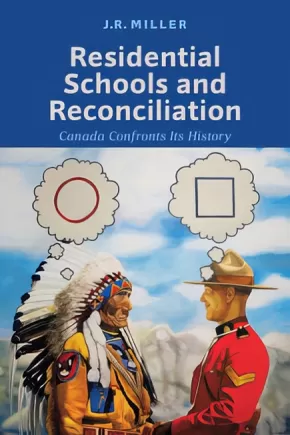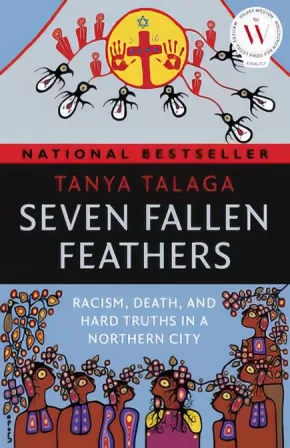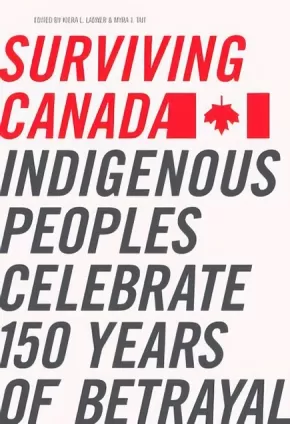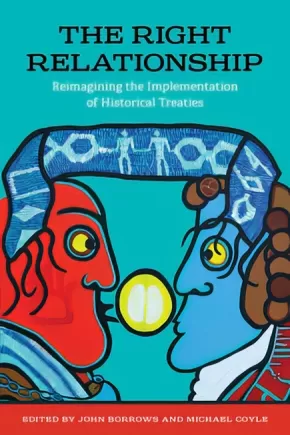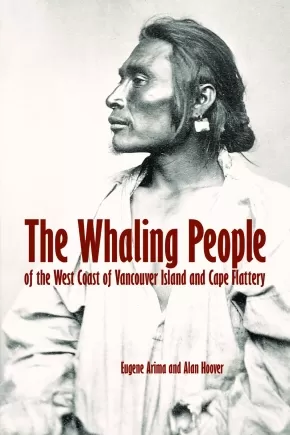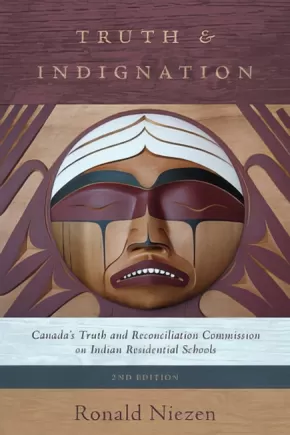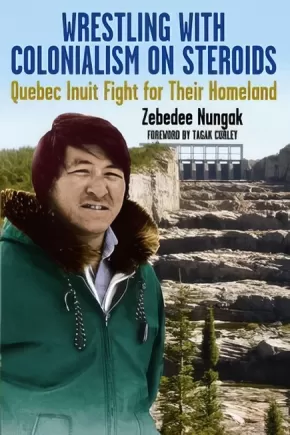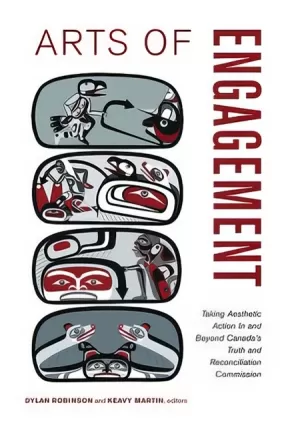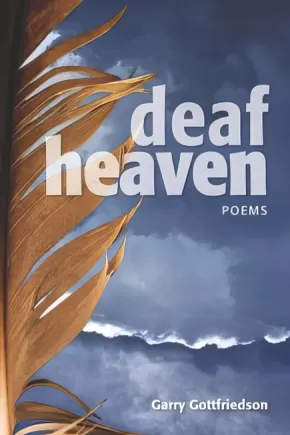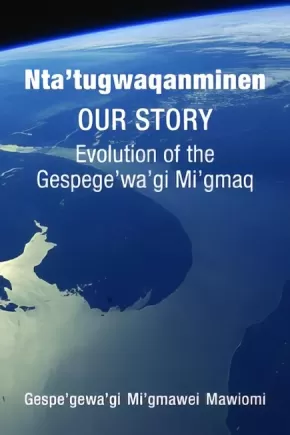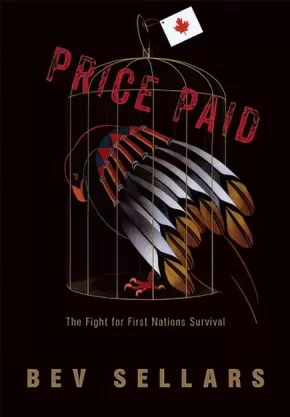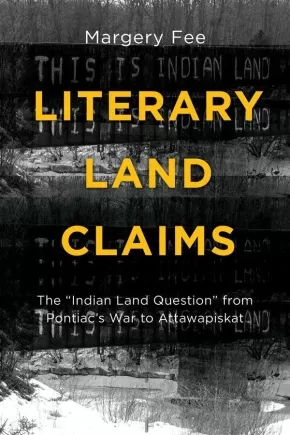
Indigenous History
76
-
90
of
111 Results;
Sort By
Go To
of 8
Residential Schools and Reconciliation: Canada Confronts Its History
$45.95
Format:
Hardcover
Text Content Territories:
Indigenous Canadian;
Grade Levels: University/College;
ISBN / Barcode: 9781487502188
Synopsis:
Synopsis:
Since the 1980s successive Canadian institutions, including the federal government and Christian churches, have attempted to grapple with the malignant legacy of residential schooling, including official apologies, the Royal Commission on Aboriginal Peoples, the Indian Residential Schools Settlement Agreement, and the Truth and Reconciliation Commission (TRC). In Residential Schools and Reconciliation, award winning author J. R. Miller tackles and explains these institutional responses to Canada’s residential school legacy. Analysing archival material and interviews with former students, politicians, bureaucrats, church officials, and the Chief Commissioner of the TRC, Miller reveals a major obstacle to achieving reconciliation – the inability of Canadians at large to overcome their flawed, overly positive understanding of their country’s history. This unique, timely, and provocative work asks Canadians to accept that the root of the problem was Canadians like them in the past who acquiesced to aggressively assimilative policies.
Excerpt
From the Conclusion:
"Canadians cannot approach reconciliation thinking that fine words and amicable gestures are enough. First Nations want their claims settled and many are interested in concluding treaties. Until Canada moves effectively to meet their desires, the country lacks the measures of social justice for Native peoples that are precondition for progress towards reconciliation...The cause of reconciliation is not hopeless; there are encouraging signs of individual and local initiatives designed to bring about reconciliation on a small scale...If enough of these small actions develop and spread, they could create the popular support for large-scale state measures that will redress the hard, material wrongs that stand in the way of reconciliation. Should that blissful day ever come, Canada will be able to advance meaningfully towards the goal of reconciliation."
Reviews
Professor Jim Miller of the University of Saskatchewan pulls back the curtain on the historical blame game. Residential Schools and Reconciliation documents Ottawa’s handling of Aboriginal issues. This is not ancient history. It just happened."
— Holly Doan, Blacklock’s Reporter. Saturday, November 18, 2017
As colonial nations around the world seek pathways to post-conflict reconciliation, J.R. Miller’s timely work is an important reminder of both the potential obstacles and the healing possibilities of such initiatives.
— Leigh Anne Williams, Publishers Weekly, February 12, 2018
Additional Information
368 pages | 6.00" x 9.00"
Seven Fallen Feathers: Racism, Death, and Hard Truths in a Northern City
$22.99
Format:
Paperback
Text Content Territories:
Indigenous Canadian; First Nations; Anishinaabeg; Ojibway;
ISBN / Barcode: 9781487002268
Synopsis:
Synopsis:
In 1966, twelve-year-old Chanie Wenjack froze to death on the railway tracks after running away from residential school. An inquest was called and four recommendations were made to prevent another tragedy. None of those recommendations were applied.
More than a quarter of a century later, from 2000 to 2011, seven Indigenous high school students died in Thunder Bay, Ontario. The seven were hundreds of miles away from their families, forced to leave home and live in a foreign and unwelcoming city. Five were found dead in the rivers surrounding Lake Superior, below a sacred Indigenous site. Jordan Wabasse, a gentle boy and star hockey player, disappeared into the minus twenty degrees Celsius night. The body of celebrated artist Norval Morrisseau’s grandson, Kyle, was pulled from a river, as was Curran Strang’s. Robyn Harper died in her boarding-house hallway and Paul Panacheese inexplicably collapsed on his kitchen floor. Reggie Bushie’s death finally prompted an inquest, seven years after the discovery of Jethro Anderson, the first boy whose body was found in the water.
Using a sweeping narrative focusing on the lives of the students, award-winning investigative journalist Tanya Talaga delves into the history of this small northern city that has come to manifest Canada’s long struggle with human rights violations against Indigenous communities.
A portion of each sale of Seven Fallen Feathers will go to the Dennis Franklin Cromarty Memorial Fund, set up in 1994 to financially assist Nishnawbe Aski Nation students’ studies in Thunder Bay and at post-secondary institutions.
Awards
- 2018-2019 First Nation Communities Read
- 2018 RBC Taylor Prize
Reviews
“Talaga has written Canada’s J’Accuse, an open letter to the rest of us about the many ways we contribute — through act or inaction — to suicides and damaged existences in Canada’s Indigenous communities. Tanya Talaga’s account of teen lives and deaths in and near Thunder Bay is detailed, balanced and heart-rending. Talaga describes gaps in the system large enough for beloved children and adults to fall through, endemic indifference, casual racism and a persistent lack of resources. It is impossible to read this book and come away unchanged.” — RBC Taylor Prize Jury Citation
“In Seven Fallen Feathers, Tanya Talaga delves into the lives of seven Indigenous students who died while attending high school in Thunder Bay over the first eleven years of this century. With a narrative voice encompassing lyrical creation myth, razor-sharp reporting, and a searing critique of Canada’s ongoing colonial legacy, Talaga binds these tragedies — and the ambivalent response from police and government — into a compelling tapestry. This vivid, wrenching book shatters the air of abstraction that so often permeates news of the injustices Indigenous communities face every day. It is impossible to read Seven Fallen Feathers and not care about the lives lost, the families thrust into purgatory, while the rest of society looks away.” — Hilary Weston Writers’ Trust Prize for Nonfiction Jury Citation
“[A]n urgent and unshakable portrait of the horrors faced by Indigenous teens going to school in Thunder Bay, Ontario, far from their homes and families. . . . Talaga’s incisive research and breathtaking storytelling could bring this community one step closer to the healing it deserves.” — Booklist, STARRED REVIEW
“Seven Fallen Feathers may prove to be the most important book published in Canada in 2017. Tanya Talaga offers well-researched, difficult truths that expose the systemic racism, poverty, and powerlessness that contribute to the ongoing issues facing Indigenous youth, their families, and their communities. It is a call to action that deeply honours the lives of the seven young people; our entire nation should feel their loss profoundly.” — Patti LaBoucane-Benson, author of The Outside Circle
“[W]here Seven Fallen Feathers truly shines is in Talaga’s intimate retellings of what families experience when a loved one goes missing, from filing a missing-persons report with police, to the long and brutal investigation process, to the final visit in the coroner’s office. It’s a heartbreaking portrait of an indifferent and often callous system . . . Seven Fallen Feathers is a must-read for all Canadians. It shows us where we came from, where we’re at, and what we need to do to make the country a better place for us all.” — The Walrus
Educator Information
The Canadian Indigenous Books for Schools list recommends this resource for Grade 12 English Language Arts and Social Studies.
Curriculum Connections: Indigenous Studies, History, Health
Additional Information
376 pages | 5.50" x 8.50" | 8-page colour insert and maps
Surviving Canada: Indigenous Peoples Celebrate 150 Years of Betrayal
$35.00
Editors:
Format:
Paperback
Text Content Territories:
Indigenous Canadian;
Grade Levels: University/College;
ISBN / Barcode: 9781894037891
Synopsis:
Synopsis:
Surviving Canada: Indigenous Peoples Celebrate 150 Years of Betrayal is a collection of elegant, thoughtful, and powerful reflections about Indigenous Peoples' complicated, and often frustrating, relationship with Canada, and how--even 150 years after Confederation--the fight for recognition of their treaty and Aboriginal rights continues.
Through essays, art, and literature, Surviving Canada examines the struggle for Indigenous Peoples' to celebrate their cultures and exercise their right to control their own economic development, lands, water, and lives.
The Indian Act, Idle No More, and the legacy of residential schools are just a few of the topics covered by a wide range of elders, scholars, artists, and activists. Contributors include Mary Eberts, Buffy Sainte-Marie, and Leroy Little Bear.
Reviews
"Published to coincide with celebrations of the 150th anniversary of Canadian confederation, this insightful compendium of largely Indigenous voices challenges all Canadians to improve relations with and conditions for the continents First Nations Peoples. Poems, essays, interviews, song lyrics, and illustrations bring razor-sharp clarity to historic and contemporary issues, including the shameful history of residential schools, current reconciliation efforts, conflicts over resource development, and how best to confront legacies of racism and colonialism. The editors' aim to provide an accessible educational tool is well-served by coverage of diverse topics, including over-representation of Indigenous people in prison, land dispossession, and how social amnesia prevents progress. Equally impressive is the recovery of repressed histories, such as First Nation women's suffrage struggles, how the city of Winnipeg was built with stolen water, and the critical battle to preserve language rights. Contributors including the late actor Chief Dan George, singer-songwriter Buffy Saint-Marie, and a number of writers and activists, such as Erica Violet Lee and Helen Knott share feelings of anger and disappointment at past and ongoing injustices, as well as an incredible hope that insistent resilience that has marked Indigenous existence in Canada will help spark a new awakening for all Canadians." - Publishers Weekly
Additional Information
464 pages | 5.50" x 8.50"
The Right Relationship
$45.95
Editors:
Format:
Paperback
Text Content Territories:
Indigenous Canadian;
Grade Levels: University/College;
ISBN / Barcode: 9781442630215
Synopsis:
Synopsis:
The relationship between Canada’s Indigenous peoples and the Canadian government is one that has increasingly come to the fore. Numerous tragic incidents and a legacy of historical negligence combined with more vehement calls for action is forcing a reconsideration of the relationship between the federal government and Indigenous nations.
In The Right Relationship, John Borrows and Michael Coyle bring together a group of renowned scholars, both indigenous and non-indigenous, to cast light on the magnitude of the challenges Canadians face in seeking a consensus on the nature of treaty partnership in the twenty-first century. The diverse perspectives offered in this volume examine how Indigenous people’s own legal and policy frameworks can be used to develop healthier attitudes between First Peoples and settler governments in Canada. While considering the existing law of Aboriginal and treaty rights, the contributors imagine what these relationships might look like if those involved pursued our highest aspirations as Canadians and Indigenous peoples. This timely and authoritative volume provides answers that will help pave the way toward good governance for all.
Additional Information
440 pages | 6.00" x 9.00"
The Whaling People of the West Coast of Vancouver Island and Cape Flattery
$19.95
Artists:
Format:
Paperback
Text Content Territories:
Indigenous Canadian; First Nations;
ISBN / Barcode: 9780772664914
Synopsis:
Synopsis:
The Whaling People live along the west coast of Vancouver Island and Cape Flattery in Washington. They comprise more than 20 First Nations, including the Nuu-chah-nulth (formerly called Nootka), Ditidaht, Pacheedaht and Makah. These socially related people enjoyed a highly organized, tradition-based culture for centuries before Europeans arrived. As whaling societies, they had a unique relationship with the sea.
In The Whaling People, Eugene Arima and Alan Hoover give an intimate account of the traditional ways in which these coastal people looked at and understood the world they lived in. They present the activities, technologies, and rituals that the Whaling People used to make a living in their complex coastal environments, and their beliefs about the natural and supernatural forces that affected their lives. The book features 12 narratives collected from First Nations elders, each illustrated with original drawings by the celebrated Hesquiaht artist Tim Paul.
This informative and entertaining book celebrates the still-thriving cultures of the Whaling People, who survived the devastating effects of colonial power and influences. It includes a history of treaty-making in BC, leading up to the just-ratified Maa-nulth Treaty signed by five First Nations of the Whaling People.
Additional Information
272 pages | 6.00" x 9.00"
Authenticity Note: Because of the artwork and narratives contributed to this work from First Nations elders and Hesquiaht artist Tim Paul, it has received the Authentic Text and Artwork labels. It's up to readers to determine if this work qualifies as authentic for their purposes.
Truth and Indignation: Canada's Truth and Reconciliation Commission on Indian Residential Schools, Second Edition
$39.95
Format:
Paperback
Text Content Territories:
Indigenous Canadian;
Grade Levels: University/College;
ISBN / Barcode: 9781487594381
Synopsis:
Synopsis:
The original edition of Truth and Indignation offered the first close and critical assessment of a Truth and Reconciliation Commission (TRC) as it was unfolding. Niezen used testimonies, texts, and visual materials produced by the Commission as well as interviews with survivors, priests, and nuns to raise important questions about the TRC process. He asked what the TRC meant for reconciliation, transitional justice, and conceptions of traumatic memory.
In this updated edition, Niezen discusses the Final Report and Calls to Action bringing the book up to date and making it a valuable text for teaching about transitional justice, colonialism and redress, public anthropology, and human rights. Thoughtful, provocative, and uncompromising in the need to tell the "truth" as he sees it, Niezen offers an important contribution to understanding truth and reconciliation processes in general, and the Canadian experience in particular.
Wrestling with Colonialism on Steroids: Quebec Inuit Fight for their Homeland
$15.95
Format:
Paperback
Text Content Territories:
Indigenous Canadian; Inuit;
Grade Levels: 12; University/College;
ISBN / Barcode: 9781550654684
Synopsis:
Synopsis:
For decades, the Inuit of northern Québec were among the most neglected people in Canada. It took The Battle of James Bay, 1971-1975, for the governments in Québec City and Ottawa to wake up to the disgrace.
In this concise, lively account, Zebedee Nungak relates the inside story of how the young Inuit and Cree "Davids" took action when Québec began construction on the giant James Bay hydro project. They fought in court and at the negotiation table for an accord that effectively became Canada's first land-claims agreement. Nungak's account is accompanied by his essays on Nunavik history. Together they provide a fascinating insight into a virtually unknown chapter of Canadian history.
Additional Information
112 pages | 5.00" x 7.50"
Arts of Engagement: Taking Aesthetic Action In and Beyond the Truth and Reconciliation Commission of Canada
$41.99
Editors:
Format:
Paperback
Text Content Territories:
Indigenous Canadian;
Grade Levels: University/College;
ISBN / Barcode: 9781771121699
Synopsis:
Synopsis:
Arts of Engagement focuses on the role that music, film, visual art, and Indigenous cultural practices play in and beyond Canada’s Truth and Reconciliation Commission on Indian Residential Schools. Contributors here examine the impact of aesthetic and sensory experience in residential school history, at TRC national and community events, and in artwork and exhibitions not affiliated with the TRC. Using the framework of “aesthetic action,” the essays expand the frame of aesthetics to include visual, aural, and kinetic sensory experience, and question the ways in which key components of reconciliation such as apology and witnessing have social and political effects for residential school survivors, intergenerational survivors, and settler publics.
This volume makes an important contribution to the discourse on reconciliation in Canada by examining how aesthetic and sensory interventions offer alternative forms of political action and healing. These forms of aesthetic action encompass both sensory appeals to empathize and invitations to join together in alliance and new relationships as well as refusals to follow the normative scripts of reconciliation. Such refusals are important in their assertion of new terms for conciliation, terms that resist the imperatives of reconciliation as a form of resolution.
This collection charts new ground by detailing the aesthetic grammars of reconciliation and conciliation. The authors document the efficacies of the TRC for the various Indigenous and settler publics it has addressed, and consider the future aesthetic actions that must be taken in order to move beyond what many have identified as the TRC’s political limitations.
Educator Information
This book would be useful for Art, Art & Politics, Social Science, and Indigenous Studies courses.
Additional Information
382 pages | 6.00" x 9.00" | 24 colour illustrations, 2 printed music items
Edited by Dylan Robinson and Keavy Martin
Deaf Heaven
$15.95
Format:
Paperback
Text Content Territories:
Indigenous Canadian; First Nations; Salish; Interior Salish; Secwepemc (Shuswap);
Grade Levels: 12; University/College;
ISBN / Barcode: 9781553804499
Synopsis:
Synopsis:
Poetry that takes us inside present-day First Nations reality to reveal the wounds of history and the possible healing to come.
As the title suggests, this new collection of poetry from Garry Gottfriedson of the Secwepemc (Shuswap) Nation deals with the ways in which the world is deaf to the problems First Nations people face in Canada today.
Follow Garry Gottfriedson in this new collection of combative poems as he compels us and Heaven to listen to the challenges facing First Nation communities today. Employing many of the Secwepemc (Shuswap) images and stories, Gottfriedson takes us inside the rez and into the rooming houses in the city cores, but always drawing new strength from the land and the people who have moved upon it. He speaks of “the smell of grandmothers and grandfathers / breathing the stories into our blood” so as to “wrap our newborn in freshly made Star Quilts.”
Gottfriedson examines such issues as the Truth and Reconciliation movements as well as the missing and murdered Aboriginal women. The poems focus not only on postcolonial issues but also on First Nations internal problems. Although the book speaks of age-old themes, it explores them through fresh modern eyes offering thought-provoking and engaging prespectives. Eloquent and witty, these poems are power-packed with imagery that uncovers the raw politics of race. There is nothing polite about them. While frequently offering a bleak view of present-day First Nation conditions, the poems also provide a sense of optimism: "the hope/that the coldest day in winter/will promise serenity in spring."
Reviews
“Gottfriedson’s poetry is built to endure and it will remain with you long after this book is closed.” – Alexander MacLeod, author of Light Lifting, finalist for the Scotiabank Giller Prize
“Garry Gottfriedson rides double, calling out the violence and corruption he’s seen, while reminding us that grounded strength comes from staying connected to grandmothers, grandfathers, horses, and the land.” – Rita Wong, author of Forage, winner of the Dorothy Livesay Poetry Prize
“Gottfriedson writes us the sound of his blood, the splatter of ink on wood, and the dripping sweat and tears of prayer — all of it telling us who we are and chanting, as if in chorus, ‘survival is brilliant.’ Will we be wise or strong enough to listen?” – Shane Rhodes, author of X: Poems & Anti-Poems
Educator Information
This book of poetry would be useful for Indigenous Studies courses or literature courses such as Indigenous Literatures, Canadian Literature, and Creative Writing.
Additional Information
100 pages | 6.00" x 9.00"
Indigenous Writes: A Guide to First Nations, Métis & Inuit Issues in Canada
$32.00
Format:
Paperback
Text Content Territories:
Indigenous Canadian; First Nations; Inuit; Métis;
ISBN / Barcode: 9781553796800
Synopsis:
Synopsis:
Delgamuukw. Sixties Scoop. Bill C-31. Blood quantum. Appropriation. Two-Spirit. Tsilhqot’in. Status. TRC. RCAP. FNPOA. Pass and permit. Numbered Treaties. Terra nullius. The Great Peace…
Are you familiar with the terms listed above? In Indigenous Writes, Chelsea Vowel, legal scholar, teacher, and intellectual, opens an important dialogue about these (and more) concepts and the wider social beliefs associated with the relationship between Indigenous peoples and Canada. In 31 essays, Chelsea explores the Indigenous experience from the time of contact to the present, through five categories – Terminology of Relationships; Culture and Identity; Myth-Busting; State Violence; and Land, Learning, Law, and Treaties. She answers the questions that many people have on these topics to spark further conversations at home, in the classroom, and in the larger community.
Reviews
"Chelsea attacks issues head on, with humour and wit, sarcasm and cynicism and clear, concise and well-organized information. She makes further research easy, as every chapter includes copious endnotes with links to her curated resources. She explains the terminology of identity — status, non-status, registered, membership, Métis, Inuit, cultural appropriation and two-spiritedness." —Nancy Adams-Kramp
"While subtitled A Guide to First Nations, Métis and Inuit Issues in Canada, it would be a mistake to see Indigenous Writes as a book primarily about Indigenous people. Instead, it is much more about all of us — our relationship as non-Indigenous and Indigenous Canadians, and how it has been shaped (and misshaped) by the historic and contemporary governance of these issues.
For any Canadian who wishes to have an informed opinion about the country that we share — or, more to the point, publicly share that opinion — Indigenous Writes is essential reading."—Michael Dudley
Educator & Series Information
This book is part of the Debwe Series.
For all teachers.
Approved for Manitoba classrooms.
ERAC approved.
Additional Information
291 pages | 7.00" x 9.00"
Nta'tugwaqanminen: Our Story: Evolution of the Gespege'wa'gi Mi'gmaq
$19.95
Format:
Paperback
Text Content Territories:
Indigenous Canadian; First Nations; Mi'kmaq;
ISBN / Barcode: 9781552667712
Synopsis:
Synopsis:
Nta’tugwaqanminen provides evidence that the Mi’gmaq of the Gespe’gewa’gi (Northern New Brunswick and the Gaspé Peninsula) have occupied their territory since time immemorial. They were the sole occupants of it prior to European settlement and occupied it on a continuous basis. This book was written through an alliance between the Mi’gmaq of Northern Gespe’gewa’gi (Gaspé Peninsula), their Elders and a group of eminent researchers in the field with the aim of reclaiming their history, both oral and written, in the context of what is known as knowledge re-appropriation. It also provides non-Aboriginal peoples with a view of how Mi’gmaq history looks when it is written from an Indigenous perspective.
There are two voices in the book — that of the Mi’gmaq of the Gespe’gewa’gi, including the Elders, as they act as narrators of the collective history, and that of the researchers, who studied all possible aspects of this history, including advanced investigation on place names as indicators of migration patterns.
Nta’tugwaqanminen speaks of the Gespe’gewa’gi Mi’gmaq vision, history, relation to the land, past and present occupation of the territory and their place names and what they reveal in terms of ancient territorial occupation. It speaks of the treaties they agreed to with the British Crown, the respect of these treaties on the part of the Mi’gmaq people and the disrespect of them from the various levels of governments. This book speaks about the dispossession the Mi’gmaq of Gespe’gewa’gi had to endure while the European settlers illegally occupied and developed the Gaspé Peninsula to their own advantage and the rights and titles the Mi’gmaq people still have on their lands.
Author Note: The Gespe’gewa’gi Mi’gmawei Mawiomi is the organization that represents the three communities of the northern part of Gespe’gewa’gi. Research associates Richard Jeannotte and Donald Jeannotte, both Gespe’gewa’gi Mi’gmaqs, and Danielle E. Cyr, senior scholar at York University, wrote the seven first chapters. Troy Jerome, current Mi’gmawei Mawiomi Secretariat Executive Director / Nutewistoq wrote Chapter 8.
Educator Information
This book would be useful for courses in social studies, history, and English language arts. Recommended for grades 8-12, as well as college/university courses.
This book would be useful for courses in social studies, history, and English language arts. Recommended for grades 8-12, as well as college/university courses.
Table of Contents
Foreword by Satsun (Herb George)
Introduction: How We Came to Write Nta’tugwaqanminen
Our Territory in Prehistoric Times
Our Place Names
Our Creation Story and Fundamental Myths
Our Historical Presence in Gespe’gewa’gi
The Treaty Relationship Between Mi’gmaq of Gespe’gewa’gi and the British Crown
Good Faith and Dispossession
Our Constitutional Rights as Gespe’gewa’gi Mi’gmaq
The Gespe’gewa’gi Mi’gmaq in Contemporary Times
Conclusion: Our Story Continues
Notes
Bibliography
Index
Foreword by Satsun (Herb George)
Introduction: How We Came to Write Nta’tugwaqanminen
Our Territory in Prehistoric Times
Our Place Names
Our Creation Story and Fundamental Myths
Our Historical Presence in Gespe’gewa’gi
The Treaty Relationship Between Mi’gmaq of Gespe’gewa’gi and the British Crown
Good Faith and Dispossession
Our Constitutional Rights as Gespe’gewa’gi Mi’gmaq
The Gespe’gewa’gi Mi’gmaq in Contemporary Times
Conclusion: Our Story Continues
Notes
Bibliography
Index
Additional Information
320 pages | 6.00" x 9.00"
320 pages | 6.00" x 9.00"
Price Paid
$24.95
Format:
Paperback
Text Content Territories:
Indigenous Canadian; First Nations;
Grade Levels: University/College;
ISBN / Barcode: 9780889229723
Synopsis:
Synopsis:
Untangles some of the truths and myths about First Nations and addresses misconceptions still widely believed today.
Price Paid: The Fight for First Nations Survival untangles truth from some of the myths about First Nations at the same time that it addresses misconceptions still widely believed today.
The second book by award-winning author Bev Sellars, Price Paid is based on a popular presentation Sellars created for treaty-makers, politicians, policymakers, and educators when she discovered they did not know the historic reasons they were at the table negotiating First Nations rights.
The book begins with glimpses of foods, medicines, and cultural practices North America's indigenous peoples have contributed for worldwide benefit. It documents the dark period of regulation by racist laws during the twentieth century, and then discusses new emergence in the twenty-first century into a re-establishment of Indigenous land and resource rights. The result is a candidly told personal take on the history of a culture's fight for their rights and survival. It is Canadian history told from a First Nations point of view.
Awards and recognition for Bev Sellars's They Called Me Number One: Secrets and Survival at an Indian Residential School
- 2014 George Ryga Award for Social Awareness in Literature
- 2014 Burt Award for First Nations, Métis, and Inuit Literature (third prize)
- Shortlisted for the 2014 Hubert Evans Non-Fiction Prize (B.C. Book Prizes)
- More than 40 weeks on the B.C. bestsellers list
#IdleNoMore: And the Remaking of Canada
$27.95
Format:
Paperback
Text Content Territories:
Indigenous Canadian;
Grade Levels: 12; University/College;
ISBN / Barcode: 9780889773424
Synopsis:
Synopsis:
Idle No More bewildered many Canadians. Launched by four women in Saskatchewan in reaction to a federal omnibus budget bill, the protest became the most powerful demonstration of Aboriginal identity in Canadian history. Thousands of aboriginal people and their supporters took to the streets, shopping malls, and other venues, drumming, dancing, and singing in a collective voice.
It was a protest against generations of injustice, a rallying cry for cultural survival, and a reassertion of Aboriginal identity.
Idle No More lasted for almost a year, and then the rallies dissipated. Many observers described it as a spent force. It was anything but. Idle No More was the most profound declaration of Indigenous identity and confidence in Canadian history, sparked by Aboriginal women and their supporters, sustained by young Indigenous peoples, filled with pride and determination. When the drums slowed, a new and different Canada was left in its wake. Partially stunned by the peaceful celebrations, but perplexed by a movement that seemed to have no centre and no leaders, most Canadians missed the point.
Through Idle No More, Aboriginal people have declared that they are a vital and necessary part of Canada's future. The spirit of the drumming, singing and dancing lives on in empowered and confident young Aboriginal people who will shape the future of this country for decades to come.
Final Report of the Truth and Reconciliation Commission of Canada Vol. 1 Summary (1 in Stock)
$27.95
Format:
Paperback
Text Content Territories:
Indigenous Canadian;
Grade Levels: University/College;
ISBN / Barcode: 9781459410671
Synopsis:
Synopsis:
This is the Final Report of Canada's Truth and Reconciliation Commission and its six-year investigation of the residential school system for Aboriginal youth and the legacy of these schools. This report, the summary volume, includes the history of residential schools, the legacy of that school system, and the full text of the Commission's 94 recommendations for action to address that legacy.
This report lays bare a part of Canada's history that until recently was little-known to most non-Aboriginal Canadians. The Commission discusses the logic of the colonization of Canada's territories, and why and how policy and practice developed to end the existence of distinct societies of Aboriginal peoples.
Using brief excerpts from the powerful testimony heard from Survivors, this report documents the residential school system which forced children into institutions where they were forbidden to speak their language, required to discard their clothing in favour of institutional wear, given inadequate food, housed in inferior and fire-prone buildings, required to work when they should have been studying, and subjected to emotional, psychological and often physical abuse. In this setting, cruel punishments were all too common, as was sexual abuse.
More than 30,000 Survivors have been compensated financially by the Government of Canada for their experiences in residential schools, but the legacy of this experience is ongoing today. This report explains the links to high rates of Aboriginal children being taken from their families, abuse of drugs and alcohol, and high rates of suicide. The report documents the drastic decline in the presence of Aboriginal languages, even as Survivors and others work to maintain their distinctive cultures, traditions, and governance.
The report offers 94 calls to action on the part of governments, churches, public institutions and non-Aboriginal Canadians as a path to meaningful reconciliation of Canada today with Aboriginal citizens. Even though the historical experience of residential schools constituted an act of cultural genocide by Canadian government authorities, the United Nation's declaration of the rights of aboriginal peoples and the specific recommendations of the Commission offer a path to move from apology for these events to true reconciliation that can be embraced by all Canadians.
Literary Land Claims: The 'Indian Land Question' from Pontiac’s War to Attawapiskat (1 in Stock) - ON SALE
$20.00 $38.99
Format:
Paperback
Text Content Territories:
Indigenous Canadian;
Grade Levels: University/College;
ISBN / Barcode: 9781771121194
Synopsis:
Synopsis:
Literature not only represents Canada as “our home and native land” but has been used as evidence of the civilization needed to claim and rule that land. Indigenous people have long been represented as roaming “savages” without land title and without literature. Literary Land Claims: From Pontiac’s War to Attawapiskat analyzes works produced between 1832 and the late 1970s by writers who resisted these dominant notions.
Margery Fee examines John Richardson’s novels about Pontiac’s War and the War of 1812 that document the breaking of British promises to Indigenous nations. She provides a close reading of Louis Riel’s addresses to the court at the end of his trial in 1885, showing that his vision for sharing the land derives from the Indigenous value of respect. Fee argues that both Grey Owl and E. Pauline Johnson’s visions are obscured by challenges to their authenticity. Finally, she shows how storyteller Harry Robinson uses a contemporary Okanagan framework to explain how white refusal to share the land meant that Coyote himself had to make a deal with the King of England.
Fee concludes that despite support in social media for Theresa Spence’s hunger strike, Idle No More, and the Indian Residential School Truth and Reconciliation Commission, the story about “savage Indians” and “civilized Canadians” and the latter group’s superior claim to “develop” the lands and resources of Canada still circulates widely. If the land is to be respected and shared as it should be, literary studies needs a new critical narrative, one that engages with the ideas of Indigenous writers and intellectuals.
Awards
Finalist for the 2015 ACQL Gabrielle Roy Prize for Literary Criticism.
Reviews
Fee contributes to the decolonization of literary studies in Canada and readers will benefit from Fee's contextualization of Indigenous notions of land rights and language. ... scholars interested in issues related to decolonization and Indigenous sovereignty will find this work especially useful. — Lianne Leddy, H-Envirnoment, November -0001
Literary Land Claims is an extremely important contribution to conversations about literature in Canada. ... At a time when universities across Canada are endeavouring to heed the Truth and Reconciliation Commission’s “Calls to Action,” Fee points readers toward a goal of consensus building, one that is predicated on muddying the binary and hierarchical logics through which we have tended to understand identity and, indeed, colonialism itself. She opens up an engaging and necessary conversation, offering a model for rich, ethical scholarly engagement with a literary landscape that is extends far beyond this book, and beyond the confines of “Canlit.” — Sarah Krotz, English Studies in Canada
... Literary Land Claims is timely reading. ... a rich and thoughtful book which will appeal to anyone writing or teaching in fields relating to settler-colonial, Canadian, and Indigenous studies. Historians in particular will find Fee’s chapters a valuable complement to the original texts she discusses. — Megan Harvey, BC Studies, November -0001
Educator Information
This book would be useful for the following subject areas or courses: Literary Criticism, Social Science, Canadian Literature, Canadian History, Indigenous Studies.
Additional Information
326 pages | 6.00" x 9.00" | 10 black and white illustrations
Sort By
Go To
of 8

